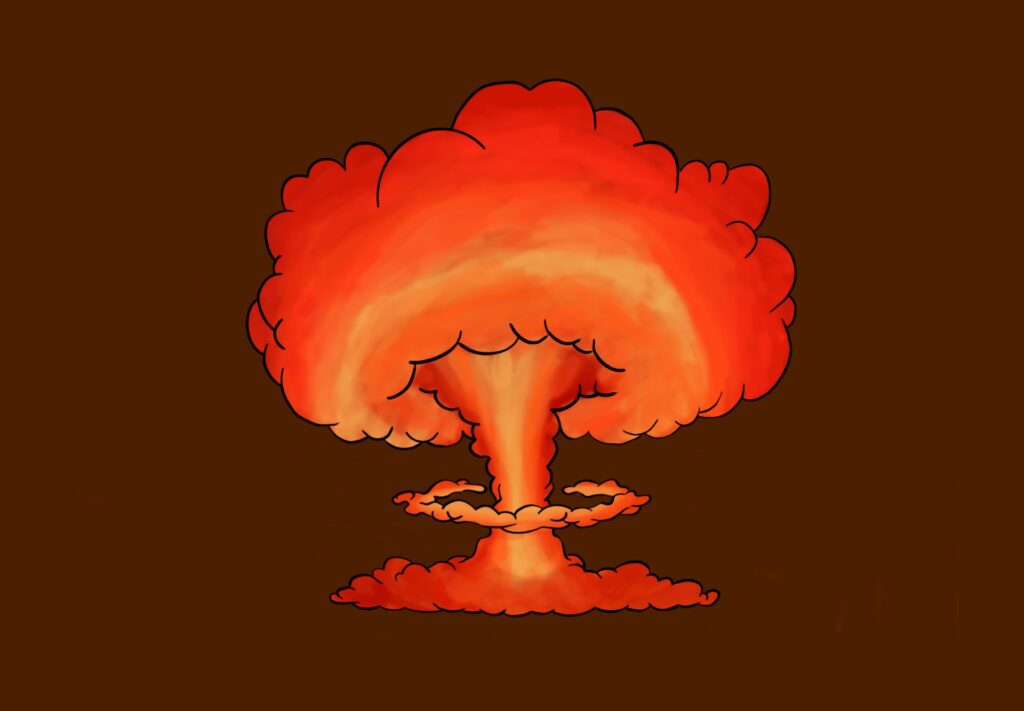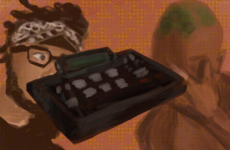After the popular Christopher Nolan film Oppenheimer hit theaters this past summer, the problem of nuclear weapons and the moral implications of governments possessing them has returned to the forefront of many people’s minds. Most have probably already decided where they stand on this infamous dilemma, but not enough consider this quandary as a chance to dissect the human psyche, analyze our inclination towards power, understand why a deterrent is so enticing, and analyze the near-impossible quest to eradicate nuclear arms.
In the annals of human history, there exist moral conundrums of monumental significance. Among these, the existence and proliferation of nuclear warheads stand as a stark reminder of both our capacity for destructive power and our ethical responsibility. Ever since their inception, nuclear weapons have captivated minds all over the world; likewise, pop culture staples, such as Stanley Kubrick’s political satire and dark comedy film Dr. Strangelove and Alan Moore’s comic book maxiseries Watchmen, have reflected on the despair of nuclear destruction and the aimless expansion of nuclear arsenals.
The intention behind the production of warheads was never to protect civilians. Rather, it has always been a way to display and flaunt power. Similar to a child who owns a toy that his classmates do not have, the validation and admiration received from others often outweigh the pleasures of the object itself. The Space Race between the U.S. and the Soviet Union during the mid-20th century was also driven by the same desire to exhibit scientific and technological prowess.
There are many other examples of this phenomenon. The Global War on Terrorism against Afghanistan after the terrorist attacks on September 11, 2001, hardly benefited any American lives; instead, the entire operation was a petty excuse to flaunt military power.
In addition, after receiving confirmation of the detonation of atomic bombs in Hiroshima and Nagasaki, President Harry S. Truman proudly declared that “the blood was on [his] hands,” clearly unaffected by the massive loss of civilian lives. Despite masking it with the claim that the bombs were discharged to guarantee Japanese surrender and protect American soldiers, that decision was driven by the same desire to display power.
German philosopher Friedrich Nietzsche touched on this concept in his 1886 book Beyond Good and Evil, writing about an “incarnate will to power” that is neither good nor bad but inherent in every human being. Nietzsche elaborates in his book The Gay Science that “we exercise our power over others by doing them good or by doing them ill.” The ill measures are crude and dangerous as they may invoke revenge, while power through benevolence allows for mutual gain.
Unfortunately, the crudeness and danger Nietzsche defines exists in the real world as the doctrine of military strategy known as mutually assured destruction (MAD), which posits that any nuclear conflict could lead to catastrophic consequences for all parties involved. And yet, according to an annual report from the Stockholm International Peace Research Institute, there are over 12,000 active warheads in the world today.
Albert Camus, a renowned French philosopher, encapsulated the paradox of warhead development when he explained its origins as the “confrontation between the human need and the unreasonable silence of the world” in his essay “The Myth of Sisyphus.” In the face of nuclear proliferation, humanity is confronted with the absurdity of its own actions. Nations accumulate weapons capable of leveling cities, all in the name of “security” — or, in other words, power.
Nuclear proliferation is terrifying yet fascinating. It strips the colossal governments and nations down to the naked reality of the human psyche, revealing their hunger and affection for power. Although explained and understood by various philosophers, this thirst for nuclear weaponry is by no means just. Just as society disobeyed nature to overcome natural selection, we must now understand the dire consequences of chasing power and suppress it before it’s too late, even if it is in our nature to do so.





